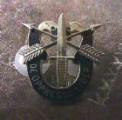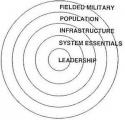Wilf,
Some of this was discussed in the thread 'COIN comes home': http://council.smallwarsjournal.com/...ead.php?t=5424
In the UK CT community junior staff can now often be heard talking about "hearts & minds" and even Frank Kitson's writings. In an odd way as some read on CT they encounter COIN and absorb that knowledge without realising there is "clear blue water" between them. Whether senior staff do this is unknown.
I suspect that in the USA there is a far greater relationship between law enforcement and the military - than the UK - simply from reservists being aclled up to serve (National Guard etc). Another thread about Salinas illustrates that: http://council.smallwarsjournal.com/...hlight=salinas
davidbfpo










 ) and why I believe it is critical to understand that under the US system there are only 2 types of wars. Declared and Undeclared. In a declared war an insurgent would be a POW and we would follow the Law of Land Warfare. In an Undeclared war we would follow the rule of law and the suspect or suspects would be prosecuted as criminals. It is a system and when you follow the Systems rules you will generally get the Effects you want....If you don't...woe be unto you because there is no telling what you will end up with.
) and why I believe it is critical to understand that under the US system there are only 2 types of wars. Declared and Undeclared. In a declared war an insurgent would be a POW and we would follow the Law of Land Warfare. In an Undeclared war we would follow the rule of law and the suspect or suspects would be prosecuted as criminals. It is a system and when you follow the Systems rules you will generally get the Effects you want....If you don't...woe be unto you because there is no telling what you will end up with.



Bookmarks